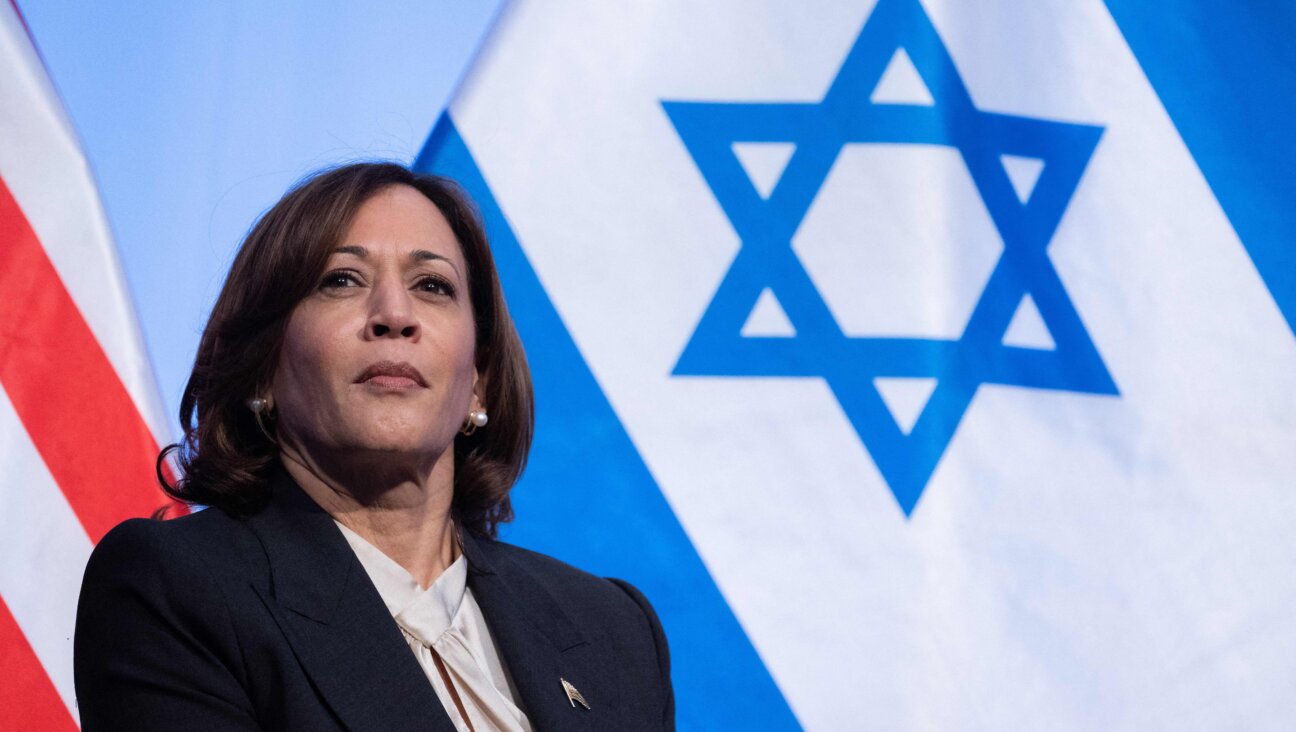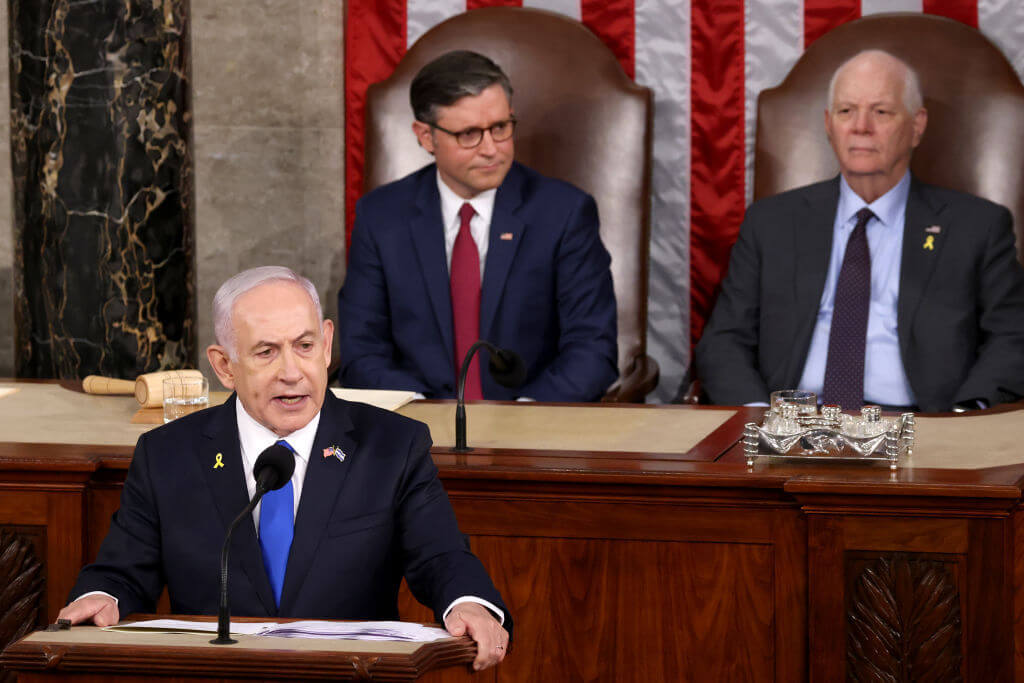Utah’s Jews Prefer Jon Huntsman

Image by Getty Images

Who Is Jack? Utah?s Jews say Jon Huntsman is the kind of Mormon they are comfortable with. Mitt Romney, despite earning national appeal among Jewish Republicans, rubs many the wrong way. Image by Getty Images
In Utah, former governor Jon Huntsman is known in some circles as a “Jack Mormon,” local parlance for someone who might claim affiliation with the Church of Jesus Christ of Latter-day Saints but is less than active in his local Mormon Church.
And among Utah Jews, that seems to count as a definite plus.
“Jews would be more comfortable with the Jack Mormon than an ethical Mormon” as president, said Bruce Cohne, a retired Salt Lake City lawyer and a former president of the United Jewish Federation of Utah. “Jews question everything. A Jack Mormon is not someone who adheres blindly to the church.”
There are two Mormons currently in the race for the GOP nomination for president. And Mitt Romney, the frontrunner, appears to be drawing substantial, if not yet massive, support from Republican Jews nationally. But in Utah, where Jews know their Mormons, some Jewish leaders harbor concerns about a more pious Mormon, such as Romney, in the White House. Indeed, in some cases those concerns appear to echo the kinds of objections that John F. Kennedy drew in 1960 from some Protestants who feared that if he were elected as the nation’s first Catholic president, he would be taking orders from the pope.
“If you listen to Romney, he never said he would oppose a message from the LDS Church,” Cohne said. “Would they use their influence to modify policies? I think so.” Using the formal title for the president of the LDS Church, Cohne said that as president, a religious Mormon “could not back off from the word of the Prophet.” (In fact, Romney said in a 2007 speech that “no authorities of my church, or of any other church for that matter, will ever exert influence on presidential decisions.”)
In other cases, Utah Jews, including Republicans, see Romney’s affiliation with the Mormon Church as suggestive of an inflexible approach to politics. “Huntsman falls into that category where he will think for himself and comes up with his own ideas. I don’t know that Mitt Romney will be that liberal thinking,” said Clifford White, a prominent Republican Jewish realtor in Utah. Still, White, said that Romney would be his reluctant second choice. “Most Mormons follow what the president of the Mormon Church says.”
As conservative Jewish leaders in America assess the 11 and counting Republican presidential candidates, they are looking foremost for someone who can beat Obama. But they are also in search of a candidate who might peel away disgruntled Jewish voters and their money from the Democratic Party. Huntsman, stuck at an abysmal 1.4 percent in public opinion polls for the GOP primary race, is widely dismissed as all but marginal in this campaign. But Jews in Utah — deeply familiar with the Mormon faith — seem simultaneously squeamish about Romney and smitten with Huntsman. And yes, religion has a lot to do with it.
Romney is a devout Mormon and has given millions to the LDS Church. During his previous campaign for president he made a point of not distancing himself from his faith, telling voters in a nationally televised speech in 2007 “I believe in my Mormon faith and I endeavor to live by it.” Huntsman is more casual about his Mormon background. “I can’t say I’m overly religious,” he said in an interview with Fortune magazine last year, adding that he sends his children to Catholic schools. “I get satisfaction from many different types of religions and philosophies.” On the national level, these distinctions mean little. But in Utah they carry weight.
“There is a bit of a culture war in Utah that exists,” said Quin Monson, a professor of political science at Brigham Young University, a school under LDS sponsorship. “If there is tension, it is often oversimplified into Mormon versus non-Mormon. I think there is some of that. But splitting it into three parts is closer to the truth — that is, Mormons, religious non-Mormons and non-religious non-Mormons.”
According to Monson, Mormons and religious non-Mormons are often political allies in conservative state politics in Utah, where religiosity — or, at least, church attendance and religious involvement — correlates strongly with conservative political outlooks. Meanwhile, Utah’s tiny Jewish population (estimates put it at 5,000 people) is a microcosm of the Jewish community nationwide. Like their coastal counterparts, Jews in Utah are mostly secular and mostly Democratic.
The fact that religiosity so strongly indicates one’s politics in Utah could explain why Utah’s Jews look at Romney — a religious Mormon — and see a conservative. This stands in contrast to the national conservative Jewish discourse, which posits Romney as a viable, even moderate, candidate who could take on Obama.
“I don’t think that in the Jewish community there is any natural prejudice against voting for a Mormon,” said Fred Zeidman, one of Romney’s Jewish outreach liaisons.
To be sure, Jewish antipathy toward Romney in Utah could be explained by the fact that the Jewish community simply doesn’t know him as well as it does Huntsman. Romney’s presence in Utah as CEO of the Salt Lake Organizing Committee for the 2002 Winter Olympics was fleeting. Huntsman, on the other hand, left a lasting impression on Utah’s Jews as a political moderate.
Huntsman repeatedly went against the Mormon grain while governor, pushing a socially liberal-ish (for Utah) agenda that earned him high approval ratings among the state’s Democrats. For instance, in 2008 Huntsman expanded public benefits to cover partners of nonmarried employees—including gays. (The bill, however, prohibited the use of the terms “domestic partnership” or “civil union” in describing these relationships in the state benefits registry.) Huntsman also reformed Utah’s draconian liquor laws to pave the way for tourism in Utah.
“He may not drink alcohol, but that didn’t prevent him from making it a policy priority to make sane some of our alcohol laws,” said David Litvack, Democratic minority leader in the Utah House of Representatives and one of two Jewish Democrats in the legislature.
Huntsman has a particularly warm relationship with Rabbi Benny Zippel, Utah’s Chabad-Lubavitch leader. When Huntsman was elected governor of Utah in 2004, Zippel invited him to a menorah lighting ceremony at ZCMI, a department store in Salt Lake City. This marked the beginning of a spiritual friendship, with Huntsman referring to the Chabad leader as “my rabbi,” according to Zippel.
In 2009, Huntsman invited Zippel to join him on a trip to Israel to seek out business partnerships between Israeli and Utah companies. Zippel brought along a Chabad of Utah yarmulke for Huntsman, which he said the candidate wears to Jewish campaign events. It was on this trip, Zippel said, that Huntsman received a phone call alerting him that he was tapped to be Obama’s ambassador to China.
“Those [Jews] who have lived here for a while have a lot more respect for the record of Jon Huntsman than for that of Mitt Romney, if that were the only choice,” said Frederick Wenger, Rabbi emeritus at Congregation Kol Ami, a Reform synagogue in Salt Lake City. “But there will be a certain number of them who will go for Obama.”
For Cohne, the choice is clear: “Huntsman over Obama? Yes. Romney over Obama? No.”
Contact Naomi Zeveloff at [email protected]






















